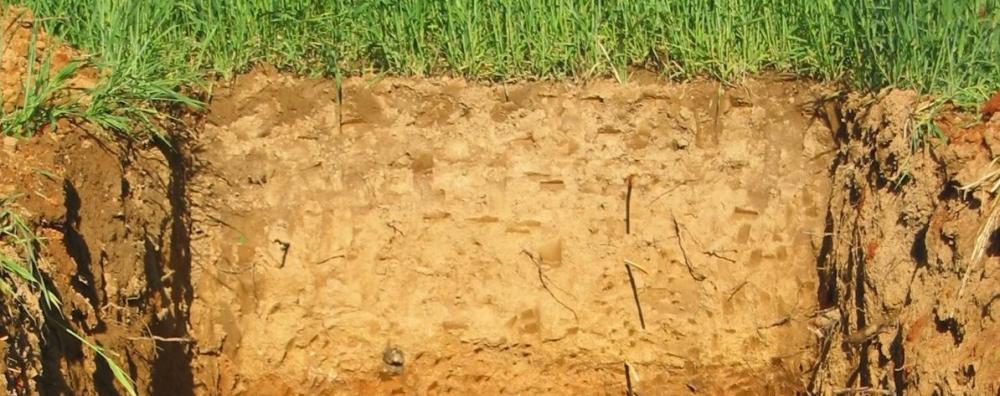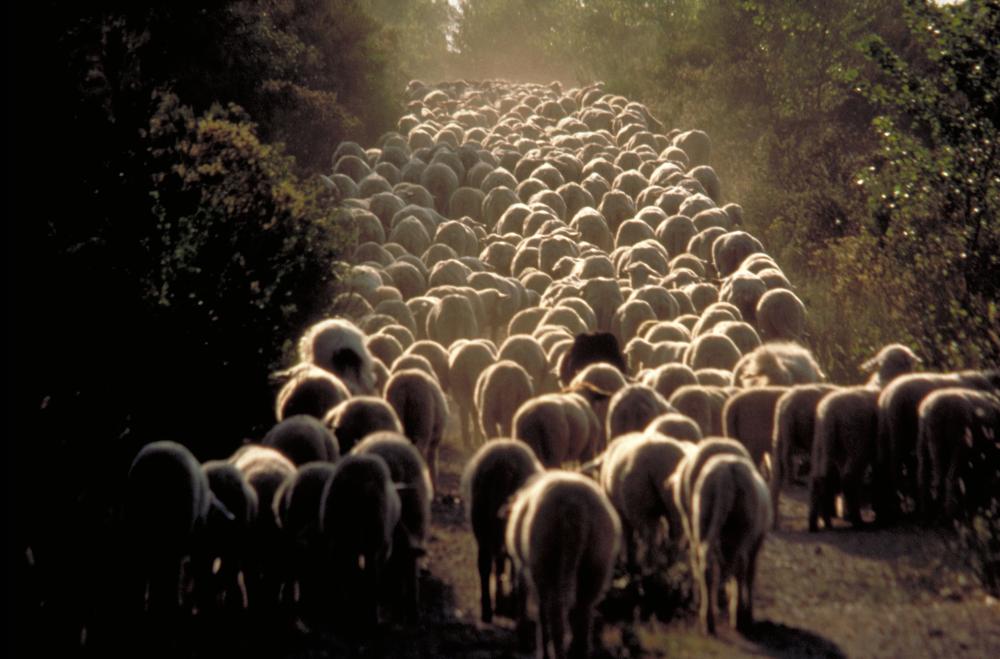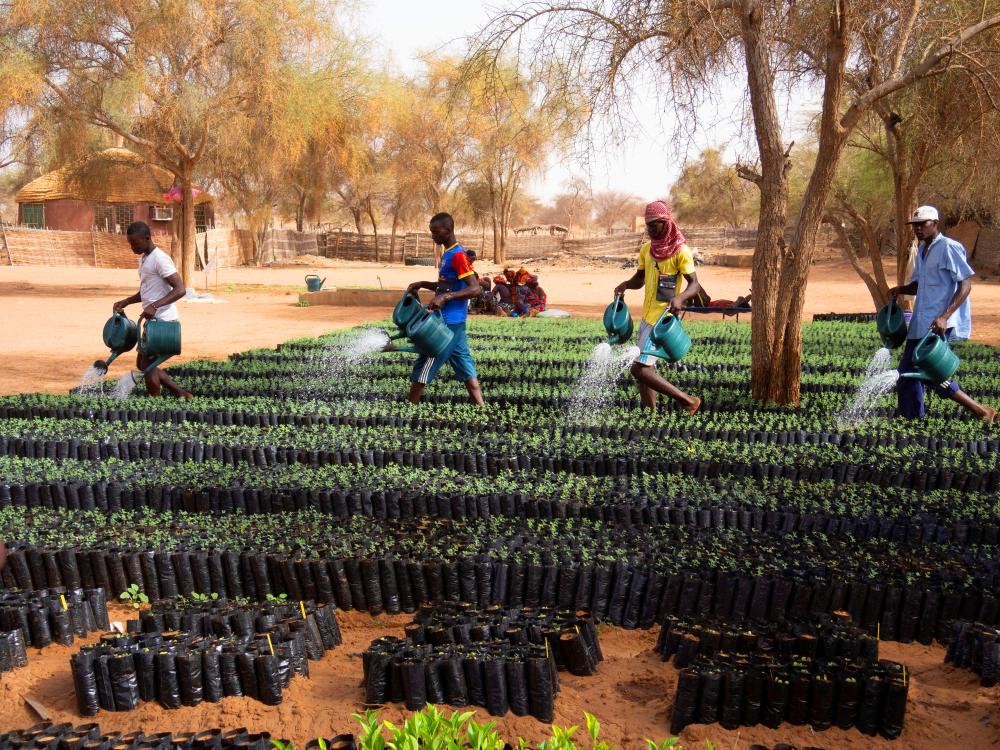Global Environmental Governance
A look into INRAE's contributions.

As humanity faces accelerating environmental crises, the role of research is more essential than ever, to generate knowledge, develop innovative solutions, and support evidence-based public policies at the global scale. As a world leader in agricultural, food and environmental research, INRAE is committed to addressing these challenges through science and international cooperation, working with partners worldwide to design agricultural, food, health and environmental systems that are sustainable, resilient and fair.
Building on a long history of contribution to global environmental governance, INRAE continues to advance scientific understanding and collective action to meet the defining challenges of our century.
Science at the heart of global environmental action
More than fifty years after the first UN Conference on the Human Environment in Stockholm, the state of biodiversity and the impacts of climate change remain alarming — and increasingly documented by science. Building on decades of progress, and ahead of COP30 on climate change and COP17 on biodiversity, research continues to call upon policymakers for urgent, coordinated action.
INRAE works with its partners to deliver science-based evidence and solutions, helping to guide international discussions and foster dialogue among all stakeholders involved in the governance of climate, biodiversity and food systems.

Getting involved
COP30 on Climate ChangeCOP30 on Climate Change (nouvelle fenêtreCOP30 will take place in the city of Belém, Brazil, at a critical juncture for global climate action and the implementation of commitments to keep warming below 1.5 °C. INRAE will present scientific solutions addressing several key challenges: sustainable water management, forest conservation, soil carbon storage, zoonosis prevention, and the agroecological transition.
Producing scientific knowledge, solutions and tools
Climate change and risks
Climate change is causing heat waves, droughts and extreme precipitation events, heightened in frequency and intensity. As a result, there has been a rise of natural, health and socio-economics risks, threatening food systems, the availability of natural resources, the livelihood of populations, infrastructures, human health and ecosystem health. INRAE is carrying out interdisciplinary research on the causes and consequences of climate change, using experiments, modelling and long-term observational data. We are working with our partners and stakeholders to design and implement sustainable solutions to the necessary systemic transitions. Our aim: mitigate and adapt to climate change, find the right adaptation solutions to new conditions, and both prevent and manage climate risks.
Biodiversity
Biodiversity is declining without precedent in our modern era, due to habitat modifications, depletion of resources, the introduction of invasive species, pollution, climate change… Anthropogenic activities, like agriculture, have major impacts on biodiversity. Therefore, a transition towards sustainable systems is necessary to preserve and restore it. INRAE is carrying research to know better, preserve and restore biodiversity, in its multiple forms: genes, species and ecosystems. It involves exploring flows and interactions of terrestrial and aquatic ecosystems with stakeholders at landscapes levels, and using agroecology as a tool for better managing natural resources, identifying natural solutions for restoring biodiversity, and handling risks. The Institute strives to create value from the natural wealth found in ecosystems and ecosystem services, notably via the bioeconomy.
Fostering global partnership research
4 per 1,000 initiative
Launched at COP21 in Paris (2015), the “4 per 1,000” initiative promotes science-based practices to increase carbon storage in soils as a means to combat climate change and enhance food security.
INRAE is a founding member, and Jean-François Soussana, who played a key role in the initiative’s creation and now serves as President of the French High Council on Climate, remains a member of its Scientific and Technical Committee.
The potential in France for storing 4 per 1,000 carbon in soils
Using a novel methodology, a study evaluated the potential in France by estimating the implementation cost, region by region, in terms of the 4 ‰ goal. More on the study
The methodology is now extended to 24 European countries through the Horizon 2020 European joint program on soil, coordinated by Claire Chenu at INRAE.
Understand the methodology easily
The Joint Programming Initiative (JPI) on Agriculture, Food Security, and Climate Change (FACCE)
Coordinated by INRAE, the JPI FACCE promotes the integration and alignment of national research resources in Europe under a common research strategy, to address the diverse challenges in agriculture, food security and climate change.
From 1972 to 2025: roadmap of INRAE’s contributions
Discover our interactive timeline
The history of global environmental governance
Global environmental governance began in 1972 with the United Nations Conference on the Human Environment in Stockholm, the first UN summit to place environmental issues on the international agenda and to create the United Nations Environment Programme (UNEP).
The 1992 Rio Conference then established the three Rio Conventions on climate change, biodiversity and desertification, each with its own governance and annual Conferences of the Parties (COPs).
The 2010s: a turning point for the land sector
INRA’s involvement dates back to the 1980s, following the 1979 Convention on Long-Range Transboundary Air Pollution.
A decisive shift came in the early 2010s, when agriculture formally entered climate negotiations for the first time at COP discussions in 2013.
INRA’s contributions intensified and culminated at COP21 in Paris (2015), where all countries announced their initial national contributions to reduce greenhouse gas emissions. The Lima–Paris Action Plan opened the door to non-state actor initiatives, leading to the launch of the “4 per 1,000” initiative by the French Minister of Agriculture, Stéphane Le Foll , marking a new recognition of the land sector’s role beyond emissions.
With observer status at COP21, INRA co-organised two international scientific conferences to strengthen the links between agricultural and climate research.
Agriculture’s potential to combat climate change was officially recognised at COP23 in Bonn (2017) with the launch of the Koronivia Joint Work on Agriculture (KJWA). Between 2018 and 2020, INRA coordinated several collective scientific submissions to the KJWA.
At COP27 in Sharm El-Sheikh (2022), the process entered a new phase with the adoption of a decision on the implementation of climate action on agriculture and food security, marking the start of a four-year programme to translate scientific evidence into action and reinforcing the central role of agriculture and research in global climate governance.



